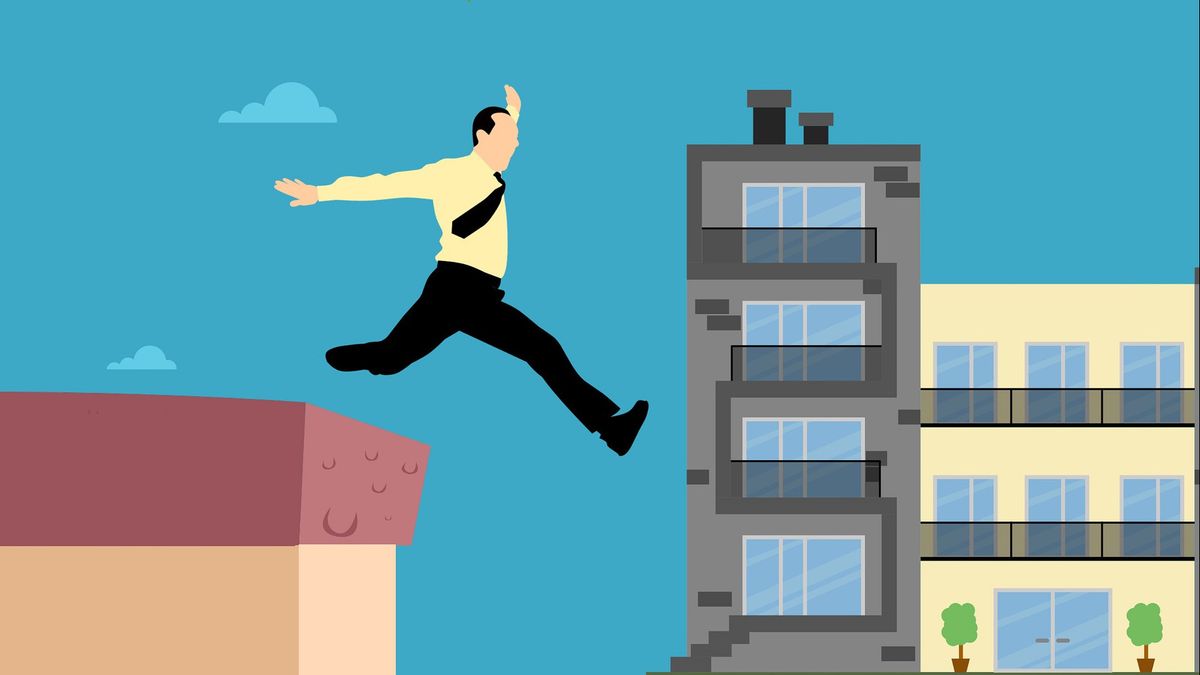JAKARTA - Recently, a viral incident of a 14-year-old student from a state junior high school in East Jakarta committed suicide. The victim, known as Nadia, ended her life because she could not stand being the victim of bullying by her friends at school.
The case of teenage suicide due to bullying, such as Nadia, is not the first time in Indonesia. Bullying cases cannot be underestimated. In adolescents, bullying is an entry point for various mental health disorders such as depression, with suicide as the most tragic end.
About Nadia, the incident started when Nadia decided to sleep in the School Health Unit (UKS) room because she had a headache since waking up. In between empty class hours, Nadia delivered the message to her friends.
After waking up from sleep, Nadia returned to class to get a bag. However, it turned out that her bag was confiscated by the teacher because Nadia was deemed not in class. Nadia sort of got punished. She felt unwell, Nadia then contacted her sister. Then, Nadia was asked to go home and her brother promised to get his bag the next day with Nadia's father.
However, Nadia chose to stay at school. At around 15.00 WIB, Nadia sent a message to her friends: You all don't like me, so you don't want to tell the teacher that I'm sleeping sick at the UKS. Just calm down, later at 15.30 I won't be there forever.
The message that Nadia conveyed to her friends really happened. Nadia jumped from the 4th floor of the school building. On social media, there were also conversations via short messages between Nadia and her friend. In the conversation, Nadia said she would rather jump from the 4th floor of her school building, rather than go home and get physically abused at home. A big question that has not been resolved either.
It is possible that Nadia not only felt pressured by her friends' bullying behavior, but also felt insecure about returning to her home. Irony, because family should be the first home and school is the second home for students, Nadia is no exception.
Deputy Chairman of Commission X Hetifah Sjaifudian reminded all school principals and teachers to care more about their students. If there is a student who complains that he is experiencing unpleasant treatment, it should be taken and investigated seriously.
"Schools must not be defensive and automatically deny that bullying occurs in their schools, because no matter how much we try to prevent bullying from occurring, it is impossible to 100 percent eradicate this possibility," said Hetifah, to VOI in Jakarta, Sunday, January 19.
According to Hetifah, it is necessary to change the perspective of the homeroom teacher and counseling guidance teacher (BK) to address the problem of bullying in schools. "I often receive input they like to underestimate, even children who report those who are considered difficult to get along," he said.
Vulnerable age
Global data from the World Health Organization (WHO) in 2018 shows that suicide is the leading cause of death in the 15-29 year age group. Survey results from the Global Schoola-Based Student Health Survey in Indonesia in 2015 found that one in 20 adolescents had felt suicidal.
Suicide ideas reached 5.9 percent in girls and 3.4 percent in boys. As many as 20.7 percent of teenagers have also experienced bullying. Quoted from CNN, the latest study from the California Healthy Kids Survey in 2019 shows that bullying has both short-term and long-term effects on adolescents.
Teens who are bullied by their peers for whatever reason have a worse long-term mental health impact than children who are mistreated by adults.
Partisanship for the victim
Psychologist Ratih Ibrahim said that taking sides with the victims of bullying is very important. Not just caring. He also reminded that bullying is a crime committed on purpose, because it has targeted the victim
"We must know that bullying is a crime. Ignorance is also bullying, ignoring bullying. Not only being more aware, but taking sides with the victim. If the victim is wrong we help him so that he can correct the things that have gone wrong with him," said Ratih, when contacted VOI.
Nadia's case really should serve as a lesson, not only for the family or the school, but for all of us. Ratih says, if the house doesn't give you a sense of security, then the school should give it. This is because school is the second home for their students.
Ratih also revealed the steps that must be taken when finding friends, relatives or people around us who have problems like Nadia. First, it must increase empathy. Putting ourselves as the victim. "Then justice must always be upheld, we help, not isolate the victim," he explained.
Then, said Ratih, if the victim tells what happened, then ask the victim to get help by telling her family. However, if the problem comes from your family, ask the teacher to talk.
"Help from whom? Especially parents, if the parents are not, then who? The teacher, so the teacher shouldn't be ignorant. If the teacher doesn't understand what to do, tell the principal. Form solidarity with friends to support the victim. , "he said.
However, if the family and school treated him badly, said Ratih, then invite the victim to report to the authorities. Because, bullying is a crime. "If the violence at home and at school is serious, report it to the authorities. This is a crime, this is a crime," he said.
Ratih assessed that in the case that happened to Nadia, there was something wrong at the school where Nadia had lost her knowledge. This is because the anti-bully movement is a movement that has been going on for years. "So there is something wrong at the school. The teacher and the principal must be reminded to introspect. There is something wrong in the school. Until there is bullying, it seems that the teacher also bullies him is not true," he said.
The English, Chinese, Japanese, Arabic, and French versions are automatically generated by the AI. So there may still be inaccuracies in translating, please always see Indonesian as our main language. (system supported by DigitalSiber.id)









